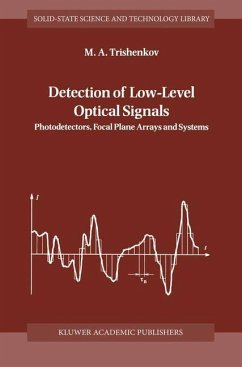
Nonlinear Optics in Telecommunications
Versandkostenfrei!
Versandfertig in 6-10 Tagen
38,99 €
inkl. MwSt.
Weitere Ausgaben:

PAYBACK Punkte
19 °P sammeln!
Broader bandwidths, denser channel spacing, and higher signal intensities all makes nonlinear effects more critical to the performance of telecommunications systems. This comprehensive and didactic overview explores the nonlinear effects from a physical point of view and discusses the implications for signal capacity. Enriched with practical considerations and experimental results, the book offers special chapters dealing with applications of nonlinear effects for signal processing, ultrafast-optical switching, wavelength conversion, nonlinear amplification, and optical phase-conjugation. The ...
Broader bandwidths, denser channel spacing, and higher signal intensities all makes nonlinear effects more critical to the performance of telecommunications systems. This comprehensive and didactic overview explores the nonlinear effects from a physical point of view and discusses the implications for signal capacity. Enriched with practical considerations and experimental results, the book offers special chapters dealing with applications of nonlinear effects for signal processing, ultrafast-optical switching, wavelength conversion, nonlinear amplification, and optical phase-conjugation. The author Thomas Schneider of Deutsche Telekom demonstrates how innovative thinking can actually exploit nonlinear effects to enhance bandwidth and overcome previous limitations. Equipped with chapter-end summaries and problems, this valuable reference can also serve as a graduate-level textbook.














